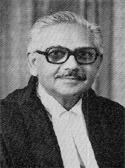
Meet Justice J.S. Verma and his Notable Judicial decisions
Justice Jagdish Sharan Verma (1933–2013) was the 27th Chief Justice of India, serving from March 25, 1997, to January 18, 1998. Renowned for his judicial innovation and activism, Justice Verma is widely regarded as one of India’s most eminent jurists, whose work significantly expanded the protection of fundamental rights, women’s empowerment, and judicial accountability.
Judicial Career and Philosophy
Justice Verma began his legal career in 1955 and was appointed a judge of the Madhya Pradesh High Court in 1972. He later served as Chief Justice of the Madhya Pradesh and Rajasthan High Courts before his elevation to the Supreme Court in 1989. Over his Supreme Court tenure, he authored 149 judgments and sat on 639 benches. Justice Verma was known for forging new judicial tools such as continuing mandamus, and for his belief in the judiciary’s proactive role in upholding constitutional values and social justice.
Landmark Judgments
1. Vishaka v. State of Rajasthan (1997)
Perhaps Justice Verma’s most celebrated judgment, Vishaka laid down the first comprehensive guidelines against sexual harassment at the workplace. The Supreme Court, led by Verma, held that in the absence of domestic law, international conventions (specifically CEDAW) could be relied upon to protect women’s rights. The Vishaka Guidelines became the foundation for India’s sexual harassment law, revolutionizing workplace rights for women.
2. Second Judges Case (Supreme Court Advocates-on-Record Association v. Union of India, 1993)
Justice Verma played a key role in the judgment that established the Collegium system for judicial appointments, enhancing judicial independence by ensuring that the Chief Justice of India and a collegium of senior judges would have primacy in the appointment and transfer of judges.
3. Ayodhya Case (Ismail Faruqui v. Union of India, 1994)
Verma was part of the bench that ruled the acquisition of religious property by the state was not unconstitutional, provided it was for a secular purpose and did not fundamentally affect the right to practice and propagate religion. This judgment had significant implications for the Ayodhya dispute and the balance between secularism and religious freedom.
4. Nilabati Behera v. State of Orissa (1993)
Justice Verma’s bench held that compensation could be awarded by courts for violations of fundamental rights, especially in cases of custodial violence or death, thereby strengthening the right to life and accountability of the state.
Post-Retirement Contributions
After retirement, Justice Verma chaired the National Human Rights Commission (1999–2003), where he advocated for justice in the 2002 Gujarat riots and recommended CBI probes into key cases. He also led the Justice Verma Committee, which recommended sweeping amendments to criminal law after the 2012 Delhi gang rape, resulting in landmark changes to India’s anti-rape laws.
Legacy
Justice J.S. Verma is remembered as “the face of judicial activism” in India, a champion of women’s rights, fundamental freedoms, and judicial accountability. His judgments and committee work have left an enduring impact on Indian law and society.












comments